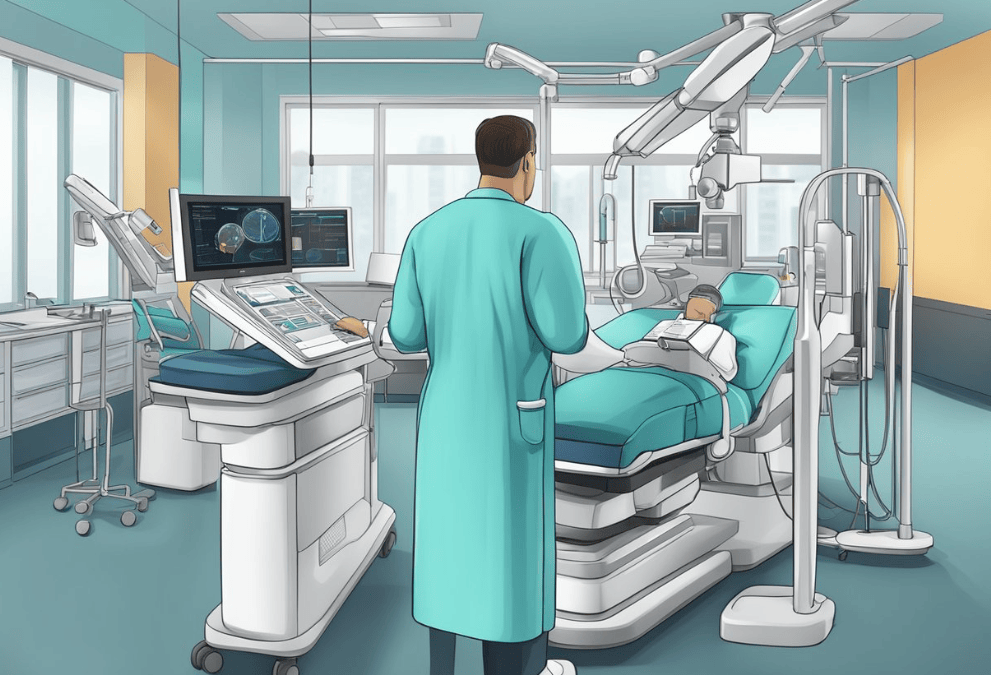Medical technology has advanced significantly in recent years, leading to a revolution in healthcare. From wearable devices to telemedicine, the impact of technology on healthcare has been immense. Medical technology has enabled healthcare professionals to diagnose diseases more accurately, provide personalized treatment plans, and improve patient outcomes.
The historical overview of medical technology reveals that the first medical tools were made of stone, wood, and other materials. Over the years, medical technology has evolved significantly, leading to the development of sophisticated medical devices and equipment. Today, medical technology includes a wide range of tools, such as diagnostic imaging equipment, surgical robots, and artificial organs.
Key advances in medical technology have led to significant improvements in healthcare. For example, the development of artificial intelligence and machine learning algorithms has enabled healthcare professionals to analyze large amounts of data quickly and accurately. Wearable devices and telemedicine have made it possible for patients to receive medical care from the comfort of their homes. These advances in medical technology have the potential to revolutionize healthcare and improve patient outcomes.
Key Takeaways
- Medical technology has revolutionized healthcare, enabling healthcare professionals to diagnose diseases more accurately, provide personalized treatment plans, and improve patient outcomes.
- The historical overview of medical technology reveals that medical tools have evolved significantly, leading to the development of sophisticated medical devices and equipment.
- Key advances in medical technology, such as artificial intelligence and machine learning algorithms, wearable devices, and telemedicine, have the potential to revolutionize healthcare and improve patient outcomes.
Historical Overview of Medical Technology
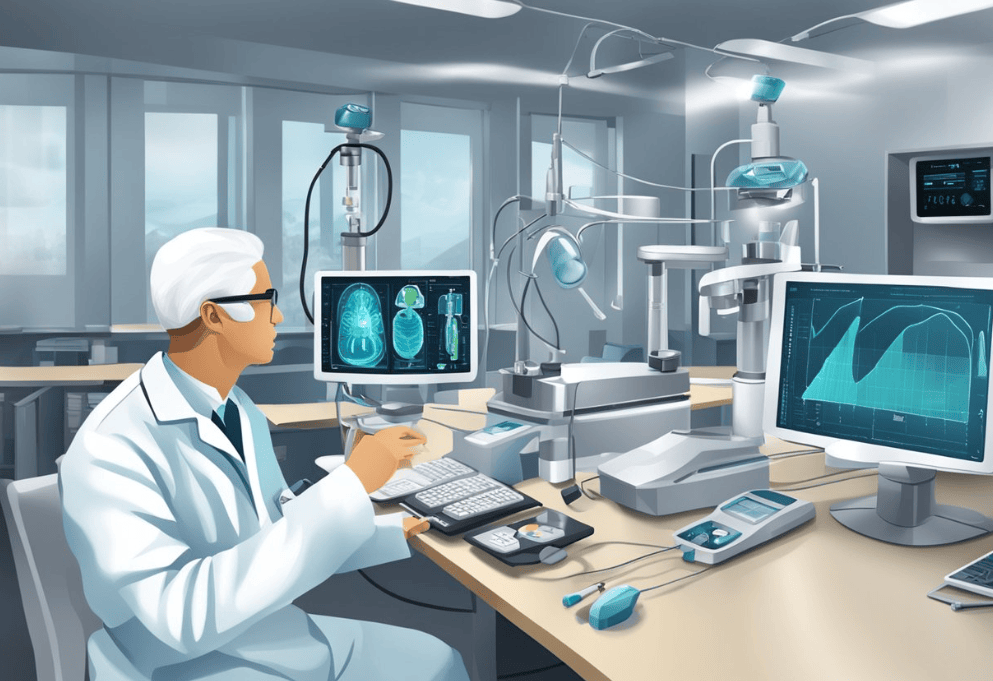
Medical technology has come a long way since the days of bloodletting and leeches. Throughout history, advances in technology have transformed the way healthcare is delivered, making it safer, more efficient, and more effective. This section provides a brief historical overview of medical technology and its impact on healthcare.
One of the earliest medical technologies was the invention of the microscope in the 17th century. This allowed physicians to see microorganisms for the first time, leading to breakthroughs in the understanding and treatment of diseases such as tuberculosis and cholera. In the 19th century, the invention of anesthesia revolutionized surgery, making it possible for patients to undergo procedures without feeling pain.
The 20th century saw even more dramatic advances in medical technology. The development of antibiotics in the 1920s and 1930s transformed the treatment of infectious diseases, while the invention of the X-ray in 1895 and later the CT scan and MRI allowed physicians to see inside the body without invasive procedures. The advent of electronic medical records in the 21st century has made it easier for healthcare providers to access and share patient information, improving the coordination of care and patient outcomes.
Medical technology has also had a significant impact on healthcare transformation. For example, telemedicine allows patients to receive care remotely, increasing access to healthcare for individuals who may not live near a healthcare facility. Wearable technology such as fitness trackers and smartwatches can help individuals monitor their health and detect potential health issues early on. Artificial intelligence and machine learning are being used to analyze medical data and develop personalized treatment plans.
Overall, medical technology has played a crucial role in transforming healthcare over the centuries. As technology continues to advance, it is likely that we will see further innovations that will improve the quality and accessibility of healthcare for all.
Current State of Medical Technology
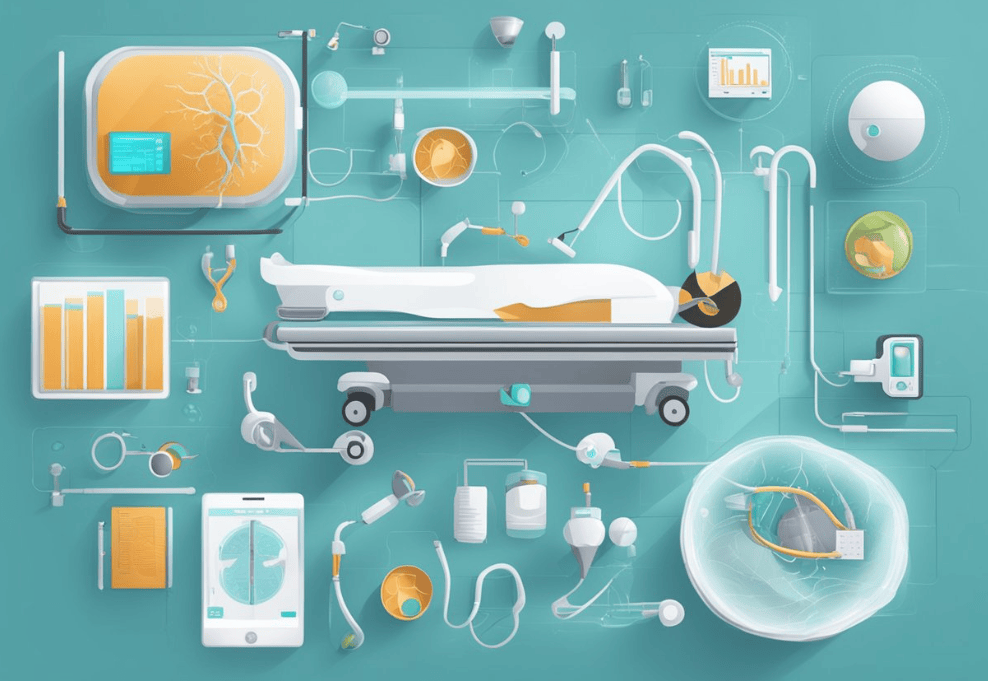
Medical technology has undergone a significant transformation over the past few years. The healthcare industry has embraced digital transformation, and technological advances are being made in various areas. The World Health Organization states that healthcare innovation is accelerating at an unprecedented scale, particularly in the digital sphere.
One of the significant advances in medical technology is the use of artificial intelligence (AI) in healthcare. AI is being used to develop algorithms that can analyze medical data and provide insights to healthcare providers. This technology is helping doctors to diagnose diseases more accurately and quickly. Additionally, AI is being used to develop personalized treatments for patients based on their medical history and genetic makeup.
Another significant advancement in medical technology is telemedicine. Telemedicine is the use of technology to provide medical care to patients remotely. It is particularly useful in rural areas where patients may not have easy access to healthcare facilities. Telemedicine allows doctors to consult with patients remotely, monitor their health, and prescribe medication.
Medical technology is also being used to develop wearable devices that can monitor a patient’s health. These devices can track a patient’s heart rate, blood pressure, and other vital signs. They can also detect changes in a patient’s health and alert healthcare providers if necessary.
Advances in medical technology are also being made in the field of genomics. Genomics is the study of an individual’s genetic makeup. Medical technology is being used to develop personalized treatments for patients based on their genetic makeup. This technology is helping doctors to provide more effective treatments for patients with genetic disorders.
In final thoughts, the current state of medical technology is rapidly evolving, and healthcare providers are embracing new technologies to provide better care to their patients. Advances in medical technology are helping doctors to diagnose diseases more accurately, develop personalized treatments, and provide medical care to patients remotely. As technology continues to advance, we can expect to see even more significant changes in the healthcare industry.
Key Advances in Medical Technology
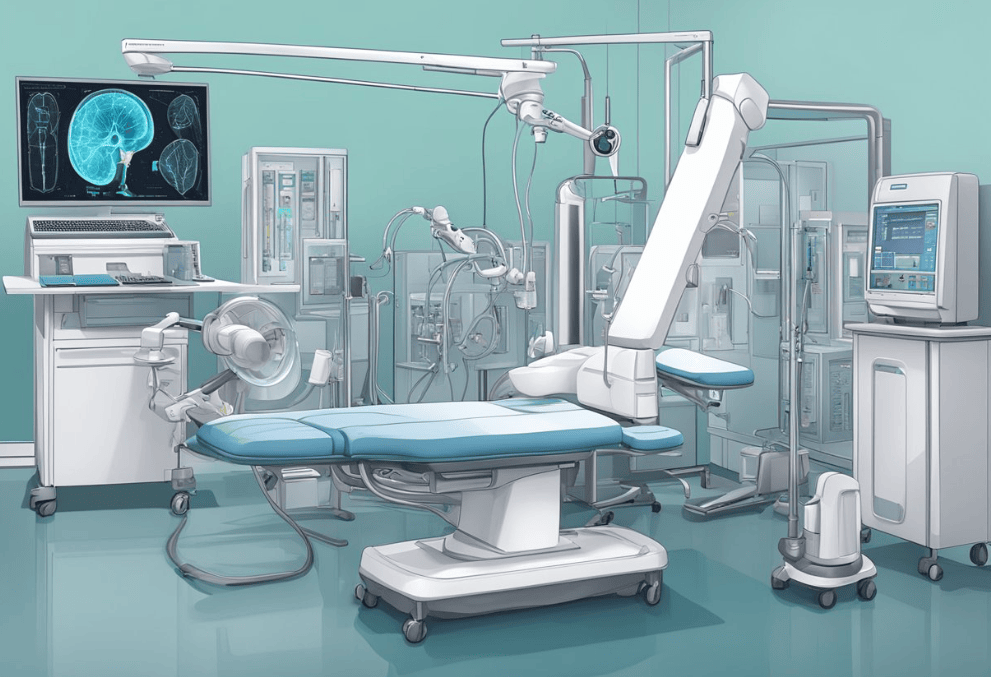
Medical technology has come a long way in recent years, and its impact on healthcare has been significant. Here are some of the key advances in medical technology that have changed the way healthcare is delivered:
1. Digital Health
Digital health refers to the use of technology to improve health and healthcare. It includes everything from electronic health records to wearable devices that track fitness and health data. Digital health has the potential to improve patient outcomes, increase efficiency, and reduce costs. For example, telemedicine allows patients to consult with healthcare providers remotely, reducing the need for in-person visits.
2. Nanotechnology
Nanotechnology has the potential to revolutionize medicine. It involves the use of tiny particles to deliver drugs directly to cells, allowing for more precise and effective treatments. For example, cancer nanotherapy is a promising approach to cancer treatment that uses nanoparticles to deliver chemotherapy directly to cancer cells, reducing the side effects of treatment.
3. Robotics
Robotic technology is being used in a variety of medical applications, from surgery to rehabilitation. Robotic surgery allows for more precise and less invasive procedures, reducing recovery time and improving outcomes. Robotic exoskeletons are also being used to help patients with mobility issues regain their independence.
4. 3D Printing
3D printing technology is being used to create customized medical devices and implants. This allows for more precise and effective treatments, reducing the risk of complications. For example, 3D printing can be used to create personalized prosthetics that fit perfectly and are more comfortable for the patient.
5. Artificial Intelligence
Artificial intelligence (AI) has the potential to transform healthcare by improving diagnosis and treatment. AI algorithms can analyze large amounts of data to identify patterns and make predictions, allowing for more accurate and personalized treatments. For example, AI can be used to analyze medical images and identify early signs of disease.
Overall, these advances in medical technology have the potential to improve patient outcomes, increase efficiency, and reduce costs. As technology continues to evolve, we can expect to see even more innovative solutions to healthcare challenges.
Impact of Medical Technology on Healthcare
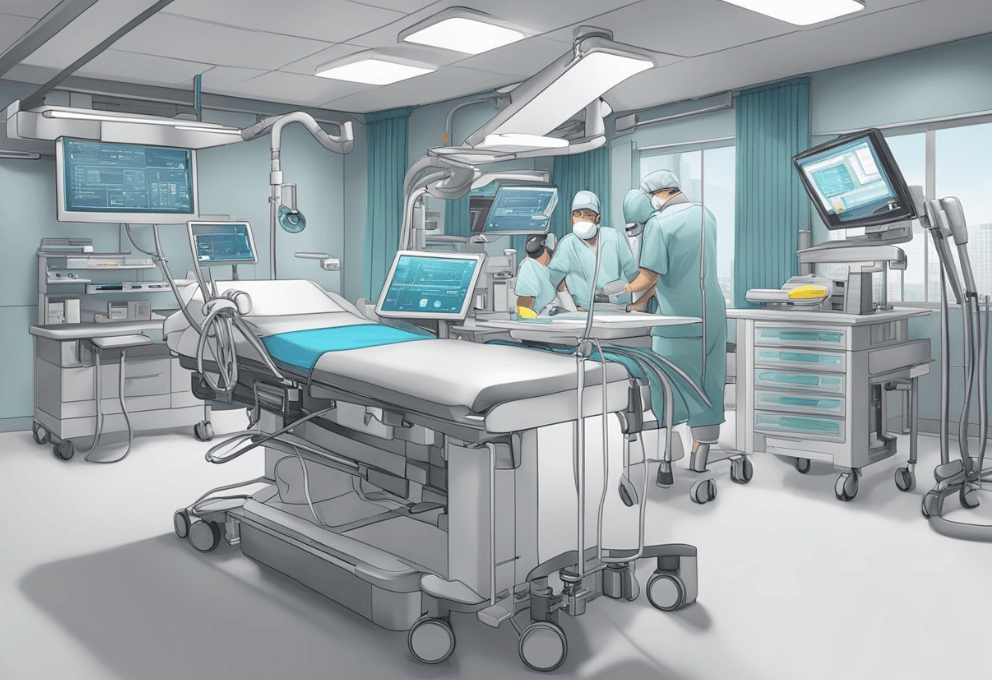
Medical technology has revolutionized healthcare in many ways, from the way patients are diagnosed to how they are treated. It has transformed the healthcare industry, making it more efficient, accurate, and accessible. Here are some of the ways medical technology has impacted healthcare:
Improved Diagnosis
Medical technology has made it easier for healthcare professionals to diagnose diseases and conditions accurately. With the use of advanced imaging technologies like MRI, CT scans, and ultrasounds, doctors can get a detailed view of the patient’s internal organs and tissues. This helps them to detect abnormalities and diagnose diseases at an early stage, increasing the chances of successful treatment.
Enhanced Treatment
Medical technology has also improved the way diseases and conditions are treated. For instance, the development of minimally invasive surgical procedures has made it possible for patients to undergo surgery with fewer complications and shorter recovery times. Additionally, the use of advanced medical devices like pacemakers, insulin pumps, and artificial joints has greatly improved the quality of life for patients with chronic conditions.
Increased Patient Access
Medical technology has also made healthcare more accessible to patients. Telemedicine, for example, allows patients to consult with healthcare professionals remotely, eliminating the need for them to travel to a healthcare facility. This is especially beneficial for patients who live in remote areas or have mobility issues.
Reduced Healthcare Costs
Medical technology has also played a significant role in reducing healthcare costs. For example, the use of electronic health records (EHRs) has made it easier for healthcare professionals to share patient information, reducing the need for duplicate tests and procedures. Additionally, the use of telemedicine has reduced the need for patients to visit healthcare facilities, which can be costly.
In conclusion, medical technology has had a significant impact on healthcare, improving diagnosis, treatment, patient access, and reducing healthcare costs. As technology continues to advance, it is likely that healthcare will continue to be transformed in many ways.
Role of Artificial Intelligence in Medical Technology
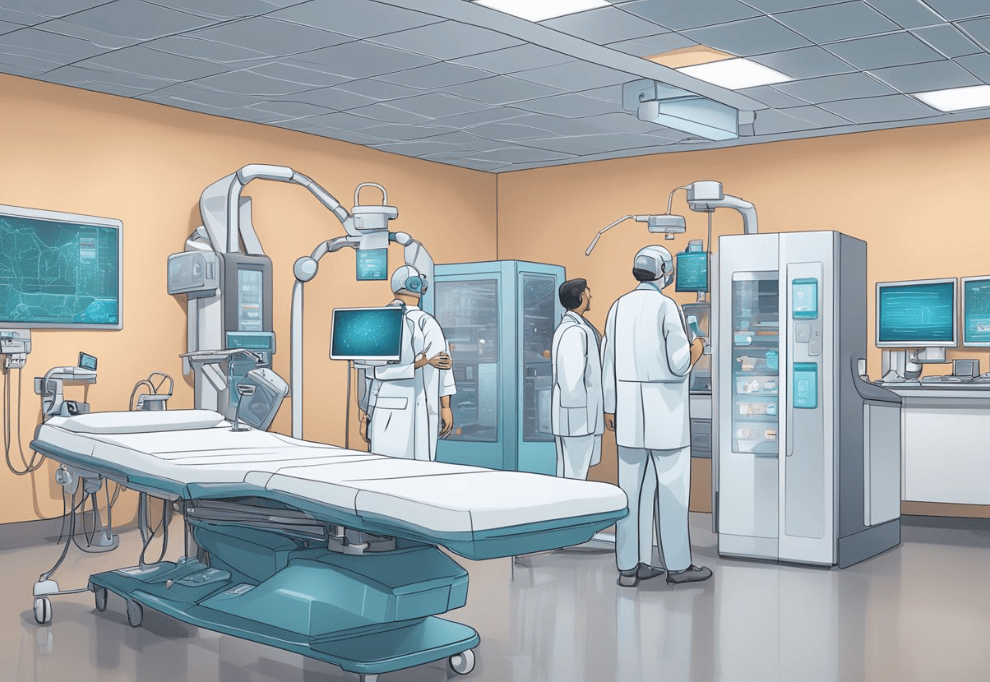
Artificial Intelligence (AI) is revolutionizing the healthcare industry by improving patient outcomes, reducing costs, and increasing efficiency. AI technology is being used in various medical applications, such as predictive modeling, image analysis, and clinical decision-making.
One of the most significant applications of AI in medical technology is predictive modeling. AI algorithms can analyze large amounts of patient data and identify patterns that can help predict disease progression, treatment outcomes, and potential complications. This information can help healthcare providers make better-informed decisions and improve patient outcomes.
AI is also being used to analyze medical images, such as X-rays, CT scans, and MRIs. AI algorithms can help radiologists detect small abnormalities that may be missed by the human eye. This can help healthcare providers make more accurate diagnoses and improve patient outcomes.
Another application of AI in medical technology is clinical decision-making. AI algorithms can analyze patient data, such as medical history, lab results, and vital signs, to help healthcare providers make more informed decisions about patient care. This can help reduce medical errors, improve patient outcomes, and increase efficiency.
AI technology is also being used to automate various tasks in healthcare, such as administrative workflows and patient outreach. This can help reduce costs, improve efficiency, and free up healthcare providers to focus on patient care.
Overall, AI is playing an increasingly important role in medical technology, and its impact on healthcare is expected to continue to grow in the coming years. While there are still challenges to overcome, such as data privacy and ethical concerns, the potential benefits of AI in healthcare are significant and cannot be ignored.
The Future of Medical Technology
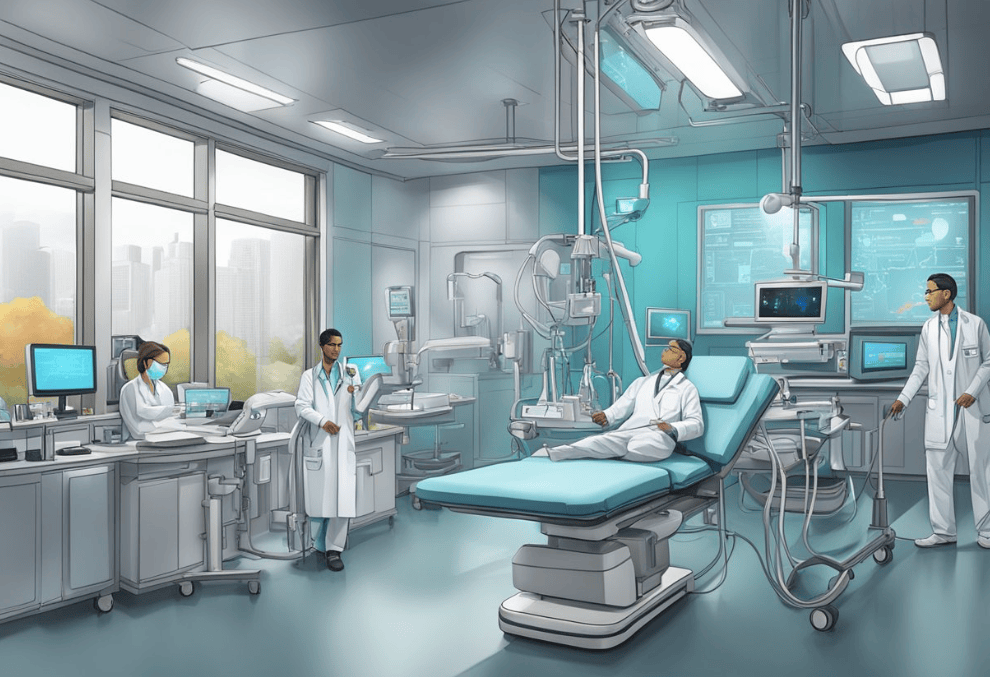
Medical technology has come a long way in recent years, and the future looks bright with continued innovation and development. The following are some of the most exciting advancements in medical technology that are expected to have a significant impact on healthcare in the coming years:
Artificial Intelligence (AI)
AI has already made significant strides in the healthcare industry, with applications ranging from medical imaging to drug discovery. In the future, AI is expected to become even more prevalent, with the potential to revolutionize the way healthcare is delivered. AI-powered chatbots, for example, could be used to diagnose and treat patients remotely, while machine learning algorithms could help doctors identify patients at risk of developing certain conditions before symptoms even appear.
Wearable Technology
Wearable technology is already popular with consumers, but it also has the potential to revolutionize healthcare. Wearable devices can be used to monitor a patient’s vital signs, track their activity levels, and even detect early signs of disease. In the future, wearable technology could become even more advanced, with the potential to predict and prevent health problems before they occur.
Telemedicine
Telemedicine has already made it possible for patients to receive medical care remotely, but the technology is expected to become even more advanced in the future. With the help of virtual reality and augmented reality, doctors could perform surgeries and other procedures remotely, while patients could receive personalized care from the comfort of their own homes.
3D Printing
3D printing has already been used to create prosthetics and other medical devices, but the technology is expected to become even more advanced in the future. In the coming years, 3D printing could be used to create customized implants and even entire organs, reducing the need for organ donors and potentially saving countless lives.
Blockchain
Blockchain technology has the potential to revolutionize the way medical records are stored and shared. By using blockchain, patients could have complete control over their medical records, while doctors and other healthcare providers could access the information they need quickly and securely. Additionally, blockchain could be used to track the supply chain of pharmaceuticals, reducing the risk of counterfeit drugs entering the market.
Overall, the future of medical technology looks bright, with the potential to transform healthcare in ways that were once thought impossible. As these technologies continue to develop, patients can look forward to more personalized, efficient, and effective healthcare.
Challenges in Implementing Advanced Medical Technology
While advanced medical technology has the potential to revolutionize healthcare, its implementation is not without challenges. Some of the key challenges include:
Cost
Advanced medical technology is often expensive, and the cost can be a significant barrier to implementation. Hospitals and healthcare providers may not have the budget to invest in the latest technology, or they may be hesitant to do so if they are unsure of the return on investment.
Training
Using advanced medical technology often requires specialized training. Healthcare providers may need to learn how to use new equipment or software, which can take time and resources. In addition, turnover among healthcare staff can make it difficult to maintain a consistent level of training and expertise.
Integration
Advanced medical technology may need to be integrated with existing systems and workflows. This can be a complex process that requires careful planning and coordination. If the integration is not done properly, it can lead to errors, inefficiencies, and other problems.
Privacy and Security
Advanced medical technology often involves the collection, storage, and transmission of sensitive patient data. This data must be protected to ensure patient privacy and security. Healthcare providers must comply with strict regulations and standards, such as HIPAA, to ensure that patient data is handled appropriately.
Resistance to Change
Finally, healthcare providers and patients may be resistant to change. Healthcare providers may be comfortable with existing systems and workflows, and may be hesitant to adopt new technology. Patients may be wary of new technology, or may prefer traditional methods of care.
Overall, these challenges highlight the importance of careful planning and coordination when implementing advanced medical technology. Healthcare providers must weigh the potential benefits of new technology against the challenges of implementation, and must work to overcome these challenges to ensure that patients receive the best possible care.
Ethical Considerations in Medical Technology
As medical technology advances, it brings with it a host of ethical considerations that must be taken into account. Here are some of the most important ethical considerations in medical technology:
Patient Privacy and Data Security
One of the most important ethical considerations in medical technology is patient privacy and data security. With the increasing use of electronic health records and other digital technologies, it is important to ensure that patient data is kept secure and confidential. This includes protecting patient data from unauthorized access, ensuring that data is not shared without the patient’s consent, and taking appropriate measures to prevent data breaches.
Informed Consent
Informed consent is another important ethical consideration in medical technology. Patients have the right to be fully informed about the risks and benefits of any medical procedure or treatment, and they must give their informed consent before any procedure or treatment is performed. With the increasing use of medical technology, it is important to ensure that patients fully understand the risks and benefits of any procedure or treatment, and that they are given the opportunity to ask questions and make informed decisions.
Access to Care
Medical technology has the potential to improve access to care for many patients, but it also raises important ethical considerations around equity and access. It is important to ensure that medical technology is not only available to those who can afford it, but also to those who need it most. This includes ensuring that medical technology is accessible to patients in rural and underserved areas, as well as to patients who may not have access to traditional healthcare settings.
Bias and Discrimination
Another important ethical consideration in medical technology is the potential for bias and discrimination. As medical technology becomes more advanced, it is important to ensure that it is not used to discriminate against certain groups of patients. This includes ensuring that medical algorithms and other decision-making tools are free from bias, and that they do not perpetuate existing disparities in healthcare.
In conclusion, as medical technology continues to advance, it is important to consider the ethical implications of these advancements. By addressing these ethical considerations, we can ensure that medical technology is used in a way that is safe, effective, and equitable for all patients.
Final Thoughts: The Path Forward in Medical Technology
Medical technology has come a long way in recent years, and it has had a significant impact on healthcare. From the development of new diagnostic tools to the creation of better treatment options, medical technology has made it possible to provide patients with more effective and efficient care.
Moving forward, it is clear that medical technology will continue to play a critical role in healthcare transformation. As technology continues to advance, it will become increasingly important for healthcare providers to keep pace with these changes and integrate new tools and techniques into their practices.
One of the key challenges facing the healthcare industry is the need to balance the benefits of medical technology with the costs. While new technologies can be expensive, they can also lead to significant improvements in patient outcomes and quality of life. As such, it is important for healthcare providers to carefully evaluate the costs and benefits of new technologies before investing in them.
Another important consideration is the need to ensure that medical technology is accessible to all patients, regardless of their socioeconomic status. While new technologies can be expensive, it is important to find ways to make them available to all patients, regardless of their ability to pay.
Overall, the path forward in medical technology is clear. With continued investment and innovation, medical technology will continue to transform the healthcare industry, providing patients with better care and improved outcomes. The key will be to balance the benefits of new technologies with the costs and ensure that all patients have access to the latest advances in medical technology.
Frequently Asked Questions
What are some examples of recent medical technology innovations?
Recent medical technology innovations include robotic surgery, 3D printing of prosthetic limbs, telemedicine, and artificial intelligence (AI) in healthcare. These innovations have revolutionized the way healthcare is delivered and have improved patient outcomes.
What are the benefits of technology in healthcare?
The benefits of technology in healthcare are numerous. Technology has improved patient outcomes, reduced medical errors, increased efficiency, and decreased healthcare costs. It has also enabled healthcare professionals to provide remote care, which is especially important in rural and underserved areas.
How has medical technology advanced over the past 20 years?
Over the past 20 years, medical technology has advanced significantly. We have seen the development of new medical devices, such as implantable devices and wearable sensors, as well as the use of AI and machine learning in healthcare. Medical imaging technology has also improved, allowing for more accurate and detailed diagnoses.
What are the top 5 new medical technology inventions?
The top 5 new medical technology inventions include CRISPR gene editing, 3D printing of human organs, virtual reality for pain management, implantable health monitors, and smart inhalers for asthma management. These inventions have the potential to revolutionize healthcare and improve patient outcomes.
What impact has technology had on the healthcare industry?
Technology has had a significant impact on the healthcare industry. It has enabled healthcare professionals to provide more personalized care, improve patient outcomes, and reduce healthcare costs. It has also increased efficiency and reduced medical errors, making healthcare safer and more effective.
What does the future of healthcare technology look like?
The future of healthcare technology looks bright. We can expect to see continued advancements in AI and machine learning, as well as the development of new medical devices and treatments. Telemedicine and remote care will become more widespread, making healthcare more accessible to people in remote and underserved areas. Overall, technology will continue to play a critical role in improving healthcare and patient outcomes.

